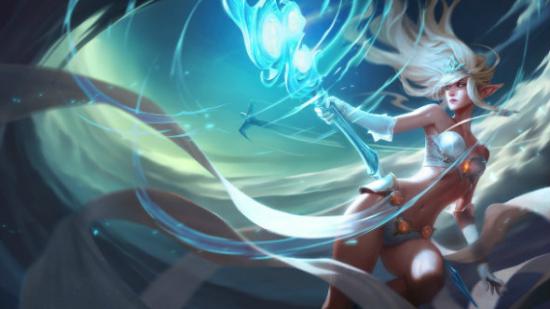I have been playing League of Legends since the end of season one, back in 2011. In that time, I have played a reasonably small pool of recurring champions. For a while, I just played Garen, before a long stint where I mostly only played support champions like Sona. Nowadays, I have around a dozen or so champions that I regularly play, and a few others who I go back to less often.
We updated our list of the best League of Legends champions.
But in the six years I’ve been honing my skills, neither I nor any of my friends have really subscribed to the meta – the unspoken rules of the game that define the best strategy according to factors like win-rate, which are most often shaped by the professional scene. That is not to say that we have never played champions that are strong at a particular time, but we all prefer to settle into champions that suit our personal style.
The mindset that helped shape this habit over the years came from watching hundreds of other players pick the same champions based on their professional popularity. It struck me as not only boring but also often futile. Just because a Korean prodigy can pull off a niche pick when it is his job to do so does not mean that any Average Joe can do the same. And yet, when a professional team play something unpredictable, my games are swamped with it for months after.
At the moment, almost none of the champions that I enjoy are being regularly seen in professional matches. I am a Jinx main, but across all competitions so far this year, she has been picked in around 1% of games. I also like playing Quinn, who has not been picked at all.
But recently, I caved. I picked a champion who, during the first week of the Group stages at this year’s World Championships, was chosen more than any other. It was Janna, a support champion who I played for no other reason than her huge professional popularity. I actually prefer Lulu, another support champion who I have clocked up many hours with. She also proved very popular at this year’s tournament, but she was played ever-so-slightly less than Janna, so I had no choice but to conform, against my better judgement.
I do not remember the last time I felt so comfortable in a game of League. As Janna, I glided serenely around the map, swatting away enemies with a sense of zen that you could scarcely hope to achieve with years of meditation. I watched with an almost out-of-body sense of calm as my opponents’ health bars fell away in the face of the onslaught from the allies that I had spent all game powering up. When my defeated foes eventually conceded, it had all been so simple, so effortless, that I could scarcely believe we had been playing for half an hour.
As much as I would like to suggest our near-flawless victory was a result of my excellent tactical and mechanical play, I cannot help but feel that would not exactly be the whole story. There is no denying that in the current state of the game Janna is very strong, and she remains one of the most hotly-contested picks as this year’s tournament continues. I owe a large chunk of my victory in that game to her relative strength, as well as her synergy with a select few items and champions.
Let me be clear: I do not think this is going to substantially change the way I play the game. There are plenty of champions out there that, while deadly in the right hands, I could never get the most out of – and, after six years of playing League, I am pretty dedicated to my comfort picks. But choosing to lean a little further towards the professional meta has already broadened my pool of champions, and taught me more about the game. After years spent silently looking down on players who religiously followed the status quo, I am not ashamed of my choices, but I’m glad that I have finally taken the time to explore a little outside of my comfort zone. Here’s to many more Janna games – until the nerfs arrive, at least.
